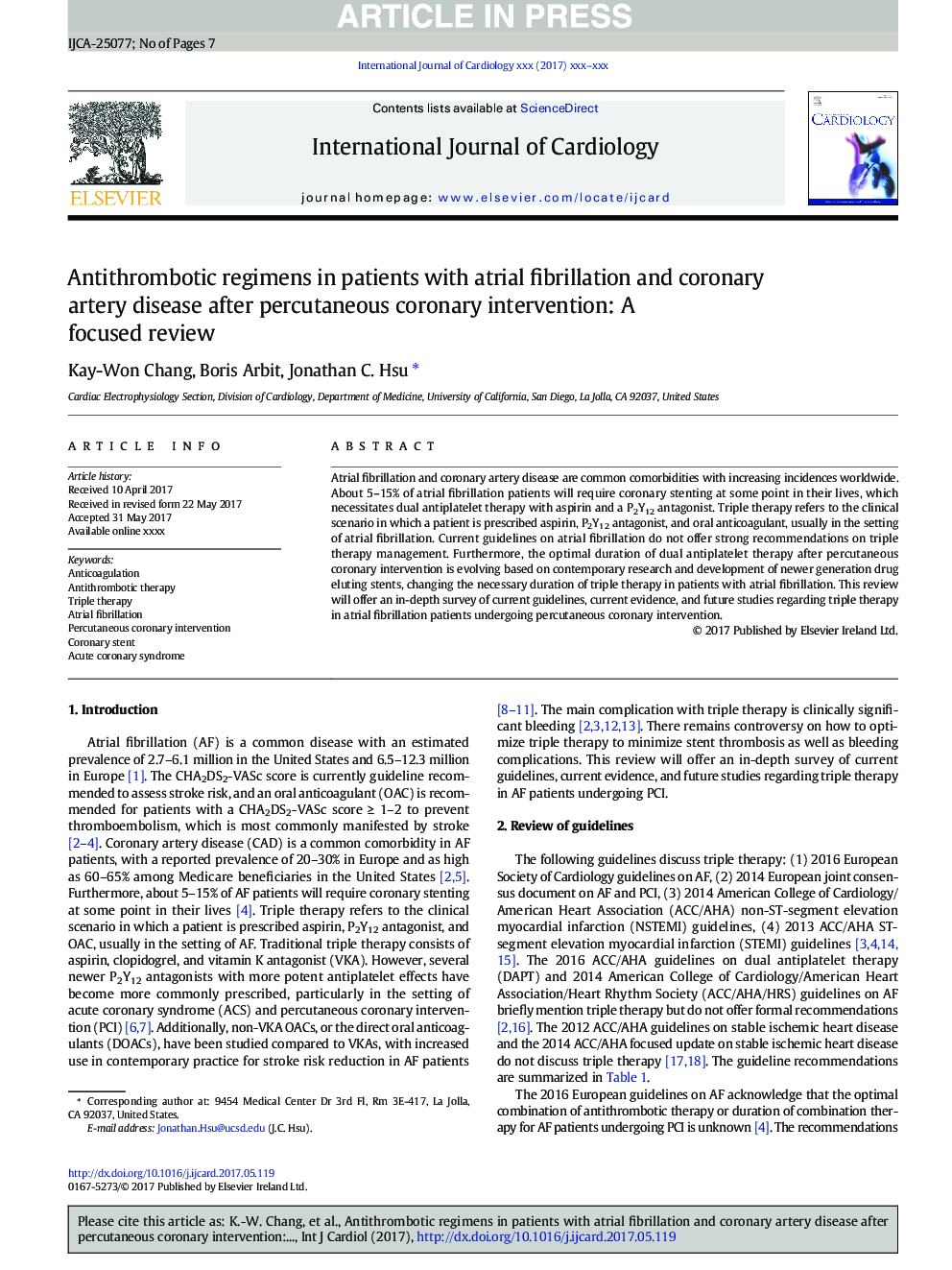| Article ID | Journal | Published Year | Pages | File Type |
|---|---|---|---|---|
| 5604262 | International Journal of Cardiology | 2017 | 7 Pages |
Abstract
Atrial fibrillation and coronary artery disease are common comorbidities with increasing incidences worldwide. About 5-15% of atrial fibrillation patients will require coronary stenting at some point in their lives, which necessitates dual antiplatelet therapy with aspirin and a P2Y12 antagonist. Triple therapy refers to the clinical scenario in which a patient is prescribed aspirin, P2Y12 antagonist, and oral anticoagulant, usually in the setting of atrial fibrillation. Current guidelines on atrial fibrillation do not offer strong recommendations on triple therapy management. Furthermore, the optimal duration of dual antiplatelet therapy after percutaneous coronary intervention is evolving based on contemporary research and development of newer generation drug eluting stents, changing the necessary duration of triple therapy in patients with atrial fibrillation. This review will offer an in-depth survey of current guidelines, current evidence, and future studies regarding triple therapy in atrial fibrillation patients undergoing percutaneous coronary intervention.
Keywords
Related Topics
Health Sciences
Medicine and Dentistry
Cardiology and Cardiovascular Medicine
Authors
Kay-Won Chang, Boris Arbit, Jonathan C. Hsu,
